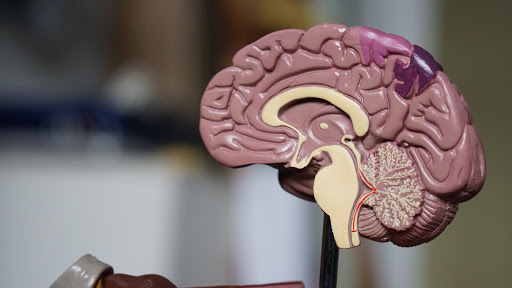The Connection Between Mental Health and Substance Abuse | Types of Depression and Treatment

Learning how to effectively deal with addiction by understanding the mental health disorders closely linked can offer means to a successful recovery pathway.
Mental Health Disorders and Substance Abuse Treatment
Substance abuse can be linked to mental health disorders such as depression and anxiety, and in turn, these mental health issues can make substance abuse more challenging to tackle. Clinical depression is categorised as a depressive disorder and can often be mistaken for a chronic condition and treated without looking at the possible causes.
Depression does not have to have to be a disabler. Learning about the different types, forms of treatments, signs, and symptoms are the first steps on the road towards recovery.
Signs of Depression
Depression is a master of disguise and comes in varied forms. Depressive symptoms can happen unexpectedly without any apparent triggers. It can be addiction-related, but it can be connected to trauma or a genetic imbalance for others. Recognising the symptoms of depression is essential and can help your health professional diagnose the disorder and seek help.

Physical Signs of Depression
Perhaps the most apparent symptoms are the most disruptive to the sufferer’s routine or way of life. Some of these physical symptoms include;
- Fatigue
- Under or overeating
- Muscle aches and pains
- Difficulty with sleeping
- Digestive trouble
There are also various physical ailments a person can suffer due to depression, and these can present as the following:
- Chronic pain
- Migraines or regular headaches
- Fibromyalgia
It is also true that a sufferer who is abusing substances may present with symptoms that are amplified by the use of prescription or illegal drugs or alcohol. To recognise if the sufferer has depression brought on by substance abuse, the following information from rethink.org may be helpful.
How Substances Affect Mental Health
Taking any substances can be dangerous. They can also have harmful interactions with any medications or other substances you might use.
- Cannabis: People take cannabis because it makes them feel relaxed or happy, but It can also make you feel anxious or feel paranoid.
- Alcohol: Drinking can make the sufferer do something you would not normally do and can include suicide and self-harm. Extremely high levels of alcohol can cause psychosis.
- Methamphetamine: Cause drug-induced psychosis.
- Cocaine is also addictive and the sufferer is more likely to have ongoing problems with depression, paranoia, or anxiety.
The above is not an inclusive list of every drug or substance that can cause mental health problems, but it is an indicator of the interlinked effects of substance abuse and the causes of depression.

Phases of Depression
Paying close attention to the sufferer’s actions will also help you determine if the person has a mental health problem that presents as depression. Everyday activities that may be a sign include;
- Regular periods of crying
- Withdrawn from interacting with others
- Placing extreme amounts of pressure on themselves
- Mood swings
- Lack of focus
- Panic attacks
- Self-harm can be linked to the desire for a momentary high and can appear in the form of cutting, fighting, and other dangerous activities.
- Substance abuse. Substances such as alcohol and drugs are used to escape reality and how sufferers might be feeling on the inside.
Substance abuse and depression often coexist with each other, making diagnosis and recovery more challenging. Health care professionals are trained in specific mental health care areas that might be interlinked with substance abuse.
Consuming large amounts of alcohol or drug-taking is not going to make the depression better; it will make the condition more serious. And conversely, if a sufferer is a substance abuser, the sufferer’s depression will likely keep them from getting a proper mindset to overcome their addiction and recover from depression.
Treatments for Depression
Treatments for depression vary and can be confusing to those who suffer from depression and others around them. Realising that there is no shame in suffering from depression is one of the best ways to begin any treatment.
If you are aware of someone suffering from this mental health disorder, it is essential to support them and seek the most effective remedies. Once the doctor has diagnosed depression, they can prescribe a treatment or recommend a more specialised treatment form.
Treatments Under Medical Professionals
- Antidepressant medication
- Anti-anxiety medications
- Holistic treatments including vitamins and supplements
- Psychotherapy or talk therapy with a professional
- Light therapy- often used for those suffering from Seasonal Affective Depression (SAD).
- TMS (transcranial magnetic stimulation) uses noninvasive magnetic pulses to control moods and stimulate positive feelings in the brain.
Alternate Forms of Treatment
Prescribed treatment or medication does not always work for some. Striving for a healthier lifestyle and eliminating specific triggers can be the best way to rid one of depression. Some changes that you can make to your lifestyle include;
- Healthy diet - well-balanced and nutritious
- Exercising regularly
- Increase endorphins
- Meditation and relaxation
- Regular reflection of progress
- Spending time with loved ones
- Cutting out negativity or things that may negatively impact you, such as alcohol or drugs, and possibly the people you choose to spend your time with may lead to a positive outcome.
Recovering From Depression and Substance Abuse
Patients with depression and substance abuse problems require a special treatment called a ‘Dual Diagnosis’ plan. Treating a dual diagnosis patient is complex and often uses therapy for depression noted above and the treatment for substance addiction combining the treatments in a double prong approach. It is a well-known fact that sufferers who have a dual diagnosis will not get the care they need in a traditional program.
A dual diagnosis is a diagnosis that recognises that the sufferer has a mental health issue and an addiction problem. Dual diagnosis is tough to treat as each disorder can intensify the symptoms of the other.
Only programs equipped to handle psychiatric problems as substance addiction will deliver proper detox, counseling, and thorough aftercare planning. It is essential to consult a specialist healthcare provider for advice and guidance.
An integrated dual diagnosis program often incorporates counseling, education, peer support, and relapse prevention.



